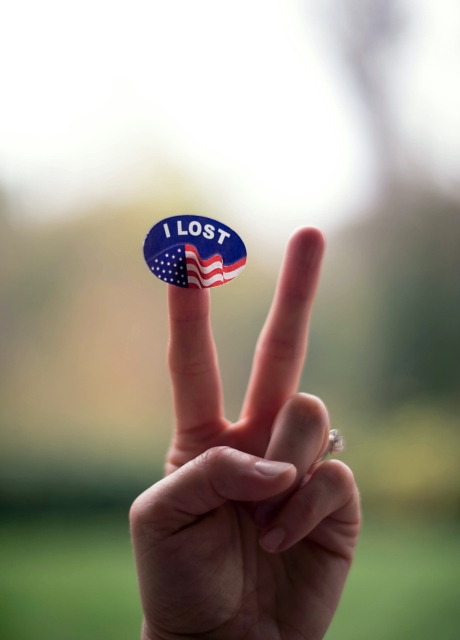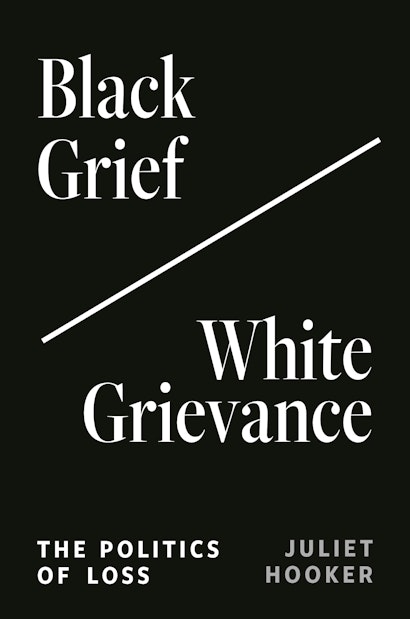One of ex-President Donald Trump’s favorite insults is to call someone a loser. Losing, by his logic, is the province of the weak, not of the powerful. It is the opposite of being a winner, someone who is able to impose his will on others. Of course, Trump responded to his loss in the 2020 election by being the epitome of a “sore loser”: by denying that he had lost and doubling down on baseless conspiracy theories of electoral fraud. He is not alone. There are multiple examples of sore losers in US politics today who refuse to accept legitimate electoral losses and instead choose to subvert the rule of law and undermine political institutions in order to attain or retain power. This is an enormous problem for US democracy. In democracy it turns out, being a good loser is a key civic virtue.
Losing is essential to democracy. This is a counterintuitive claim insofar as we are more accustomed to thinking about democracy in terms of empowerment. Democracy, after all, is fundamentally about all members of a political community being able to participate in designing the political institutions and the policies they wish to pursue in common. But to go back to an ancient definition of politics, from Aristotle, politics entails ruling and being ruled in turn. This is especially true of democratic politics, but we tend to focus more on the first aspect of his definition, ruling, than the second element, being ruled in turn. This is one of the paradoxes of democracy, that the experience of democratic politics is often one of dis-empowerment, of losing a policy debate or electoral contest. Democracy, then, is defined as much by political loss as it is by empowerment, which means that losing well is as central a democratic activity as exercising power collectively. When citizens refuse to accept legitimate losses, and seek to change the rules of the game after the fact in order to hold on to power, they erode democracy and turn to authoritarianism. This troubling trend is especially evident at the state level today.
Within the United States’ federal system, states were said to function as “laboratories of democracy,” where creative or novel laws and policies could be tested that might later be adopted nationally. Today, however, many Republican controlled-states are functioning as laboratories of authoritarianism instead. The state of Wisconsin is a frightening case study in how refusal to accept legitimate political loss is leading some elected officials to undermine democracy.
One key way in which the principle of democratic representation has been undermined is through extreme partisan gerrymandering. The state legislative maps adopted in Wisconsin after 2010, for example, have ensured Republican victories in a majority of seats ever since even though it is a closely divided purple state. In 2012, thanks to the aggressively gerrymandered electoral maps, Republicans won 60 state assembly seats with only 48.6% of the statewide vote. In 2018, with only 44.8% of the statewide vote, Republicans still netted an astonishing 63 seats. And in 2022, despite an almost evenly divided electorate, Republicans won 64 of the 99 seats in the state assembly, a near two-third majority. The same pattern was replicated, and indeed exacerbated in the case of the state senate maps.
In Wisconsin, as in many states, state legislatures have almost exclusive control over the process of drawing electoral maps, which meant that only the Republican lawmakers who had created maps that assured their party would forever remain in power had the ability to create new maps that would allow for fairer representation of the state’s voters. The only other option against gerrymandering was appealing to the courts to throw out unfair maps, and in 2019 the Supreme Court disallowed federal intervention. This left such challenges in the hands of state supreme courts, and Wisconsin’s Republican-controlled court imposed the legislature’s preferred maps. But the decision by Wisconsin voters to elect Janet Protasiewicz to a vacant seat on the state’s seven-member supreme court in 2022 ended the court’s conservative majority, thus opening the door for a successful challenge to the state’s electoral maps.
In response, GOP officeholders now seem bent on creating a state constitutional crisis by trying to change the rules of the game after Protasiewicz’s victory. They are threatening to impeach her before she has even had a chance to rule on a case. This unprecedented move would be only the second vote by the Assembly to impeach a state judge in Wisconsin history. The Republican-controlled legislature’s naked refusal to abide by the will of Wisconsin’s voters would be even more clearly revealed for what it is—an unconstitutional power grab—if the Assembly voted to impeach the justice but the Senate refused to take any action. In that case, instead of Democratic Governor Tony Evers being able to appoint her replacement (as would happen if she were convicted and removed from office), Protasiewicz would be suspended from all official duties and the court would be deadlocked. Were the legislature to go through with impeachment they would be nullifying the results of a fairly contested election and refusing to accept a legitimate electoral loss.
To state the obvious, ceding power is difficult. But this is what democracy demands of politicians and voters alike on a regular basis. For democracy to function legitimate political loss must be routinely accepted. Those who refuse to accept loss when there is no evidence of fraud or other improprieties often resort to arguing that the loss is illegitimate by virtue of the victory having being achieved by means of the participation of the “wrong” kinds of voters. In Wisconsin and elsewhere, for example, election deniers have argued that Democratic victories were suspect because they relied on votes by various kinds of others (such as non-whites, especially Black voters in large cities, and urban rather than rural voters) or on the influence of outsiders (such as temporary residents like college students and funding from out-of-state donors). But in modern mass democracies we are fellow citizens with many kinds of others, and their views have as much political weight as our own, even when we vehemently disagree with them.
Part of the problem in Wisconsin is that the gerrymandering Republicans used to assure themselves of winning meant that they have rarely had to lose in recent state elections. As a result, they have not had to practice the key democratic capacity of accepting legitimate loss. For the sake of democracy in Wisconsin (and the US as a whole), they need a crash course in how not to be sore losers. As a society, we recognize how necessary it is for adult relationships to not be sore losers (or bad winners), so there are children’s books that teach kids these skills. It seems that we need to send many of our elected officials to democracy school. Losing well is not only an important life lesson, it is also a key civic capacity that is vital for democratic survival.
Juliet Hooker is the Royce Family Professor of Teaching Excellence in Political Science at Brown University. She is the author of Race and the Politics of Solidarity and Theorizing Race in the Americas: Douglass, Sarmiento, Du Bois, and Vasconcelos, which was awarded the American Political Science Association’s 2018 Ralph Bunche Book Award for the best work in ethnic and cultural pluralism and the 2018 Best Book Award of the Race, Ethnicity, and Politics Section of the American Political Science Association.

